The protest against the rape and murder of a young doctor inside the hospital at RG Kar Medical College in Kolkata has spread on a larger scale on Wednesday. There was already a movement of junior doctors in other medical college hospitals in India including West Bengal.
Doctors in almost all private hospitals in West Bengal have stopped seeing outpatients on Wednesday.
On the other hand, more than a hundred gatherings are going to be held in West Bengal on Wednesday night with a call on social media called ‘Occupy Girls Night’, the gathering will also be held in Chittaranjan Park, known as Bengali neighborhood of capital Delhi.
While the protestors are demanding justice for the RG Kar Medical College doctor who was raped and murdered at her workplace, the nurses and women doctors who work in the hospitals are also worried about the lack of security in the hospitals.
According to a report by the internationally recognized medical journal Lancet, 153 cases of violence against health workers were registered in India from 2007 to 2019.
How is the security system in night hospitals? How safe are health workers?
BBC correspondents from four big cities in India have found that.
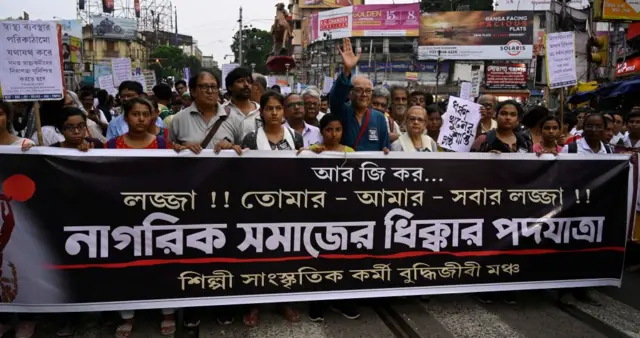
Calcutta
A junior doctor, Sushmita Chakraborty, was standing in front of the emergency department where a female doctor was raped and murdered on the fourth floor of the RG Kar Medical College building last Thursday morning.
He said that before the incident, they worked calmly, thinking that the hospital was their second home. But one incident completely changed his thinking.
“I don’t think any girl feels safe here anymore. Everyone is afraid to go to our hospital”, said Dr. Chakraborty.
A woman doctor, Namrata Mitra, recently wrote on her Facebook wall that how bad ‘night duty’ is for women health workers. She was a student of RG Kar Medical College.
Pathologist by profession. Mitra said that if he had night duty, he would take his father with him. Many even laughed about it.
He wrote, “During on-call duty, I took my father with me. Everyone laughed. But I had to sleep in a room at the end of a long, dark corridor. An iron gate was closed, so that only the nurses could open it when a patient came.”
“I am not ashamed to admit that I was scared. What if someone in the ward – a ward boy or even a patient tried to do something? I took a chance because my father was a doctor, but not everyone has that chance,” wrote Dr. Mitra. .
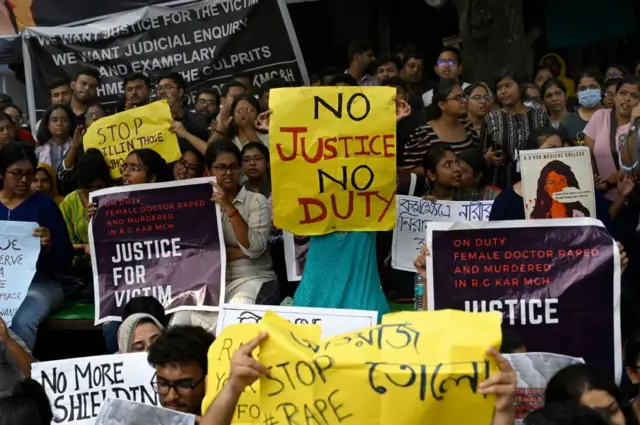
Sharanya Roy, a recent graduate of Sagar Dutt Medical College on the outskirts of Kolkata, is preparing for her post-graduate studies in medicine.
He was saying, “Our hospital has an on-call room next to the ward. There are no separate rooms for boys or girls. We shared the interns and house-staff. Boy or girl – had to live in that room. The boys who lived were my classmates. But if there was a need to rest, one would rest, while the other would look after the patient. There was also an attached washroom next door.
The RG Kar Medical College doctor who was raped and murdered was taking a break from his night duty when he was brutally attacked.
“During college, I didn’t bother much about security. I used to see security guards and police in front of the emergency department. There were also cc cameras, but I didn’t think about how many there were or whether they were working or not, whether anyone was watching or not. Now after this incident, thinking about it, I see that there are many things in the system book, but I don’t know whether they are supervised or not!”, said Sharanya Roy.
Madhuparna Nandi, a junior doctor at the National Medical College in Kolkata, said that there was no separate rest room or bathroom for women doctors in her college.
In his words, “patients or nurses have to use the bathroom. If a little rest is needed after a long work, the patients have to sleep on an empty bed.”
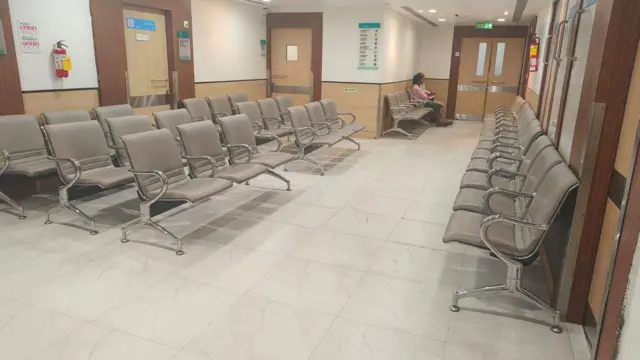
Delhi
There are three major government hospitals in the capital Delhi.
His is a Loknayaka hospital. There is a metal detector at the entrance, but it did not appear to be working.
When BBC correspondent Umang Poddar entered the hospital, no one searched him. The gynecology ward guard, however, asked why she had gone there, after which no further questions were asked of the BBC correspondent.
A senior doctor said, “Anyone can travel freely. More CCTVs need to be installed, and the ones that are there, no one even looks at them.”
Again a nurse working at GB Panth Hospital said, “We need better security. Bouncers can be placed to protect health workers from disorderly behavior by people accompanying patients.”
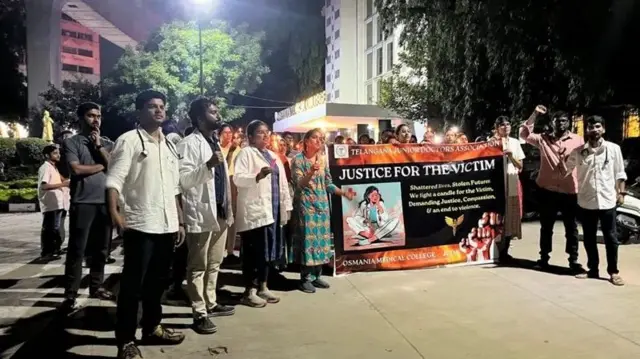
Chennai
Omandura Government Medical College is in the very heart of Chennai.
When BBC correspondent Sharda V parked her car at the hospital at 9.30pm, a guard approached and questioned her.
A BBC correspondent saw relatives of patients sitting on dimly lit stairs outside the ‘admission block’. Two policemen were standing at the entrance to the emergency department.
Avarna, an intern working on the night shift, said that the incident in Kolkata has created a panic among women health workers. The hospital administration held a meeting to discuss security measures, said Mr. indescribable
It is directed that the interns shall use the staff-room, and keep the room locked.
It is advised to use the police app to send emergency messages.
Miz Avarna, who participated in the protest demanding the safety of doctors, said, “Having intercom facilities and emergency buttons in the wards will help.”
A staff nurse working at Omandura Multi-Specialty Hospital, the state’s premier hospital, complained that there was no place to rest between night shifts. A chair and a long desk are required to work on night duty.
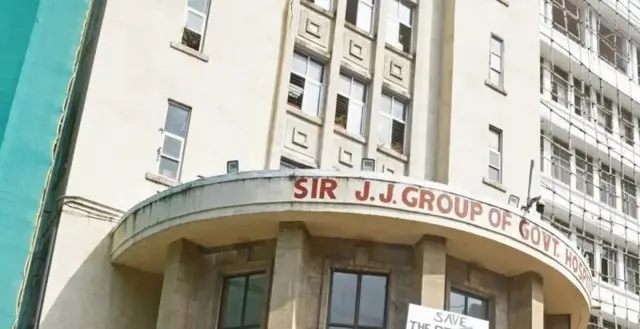
Mumbai
As BBC correspondent Deepali Jagtap entered Mumbai’s JJ Hospital late Monday night, she noticed the presence of security guards at the main entrance. They could go to the hospital campus but could not go to the medical ward without permission.
However, some female doctors and nurses reported that they did not feel safe while working the night shift.
Resident doctor Aditi Kanade said, “The administration should increase the number of security guards in the medical wards and outside the campus. The hospital campus is quite large and there are no lights in many areas. It is scary to go from the hostel to the medical ward at night.”
He further said, “There are no CCTV cameras in any room or corridor. They are needed everywhere. There should be a separate room for women doctors outside the operation theatre, but there is none!”
A nurse on duty, Hemlata Gojbe, said, “The relatives of the patients get agitated and abuse many times, some are intoxicated and some try to exert political pressure. There is no one to stand by us in these times.”
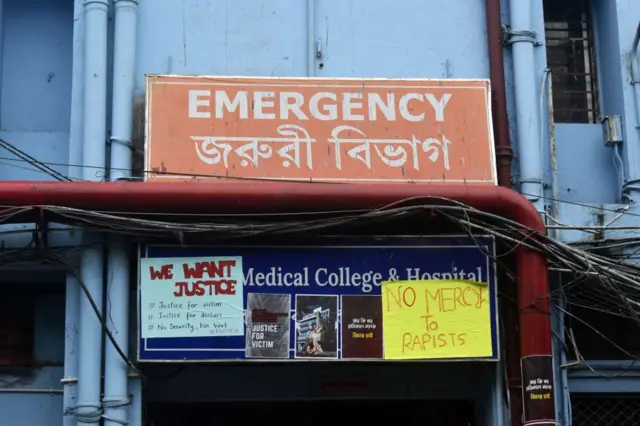
Instructions to take measures for safety
In the wake of the RG Kar Medical College incident, questions have been raised about the security measures in hospitals across the country, protests are taking place.
Meanwhile, the National Medical Commission issued a guideline on Tuesday. It states that every medical college should formulate a policy for creating a safe workplace. In that policy measures should be taken to protect teachers, students and resident doctors. Outstations, wards, hostels and all open places to have adequate light from evening onwards, CCTV surveillance.
Any incident of violence against students should be promptly investigated and reported to the police. The National Medical Commission has to inform that information within 48 hours.
Assam’s Silchar Medical College has given a different advice for women.
It states that female doctors, students and other workers should avoid places that are somewhat secluded or where there is not enough light. Female doctors and students should avoid walking alone. It is better not to leave the hostel at night unless it is very necessary. Strangers should be avoided.
There has been a debate on social media since Wednesday morning about this suggestion of Silchar Medical College.